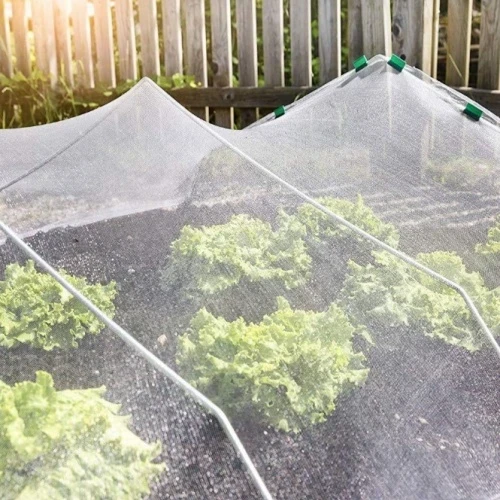-
 Afrikaans
Afrikaans -
 Albanian
Albanian -
 Amharic
Amharic -
 Arabic
Arabic -
 Armenian
Armenian -
 Azerbaijani
Azerbaijani -
 Basque
Basque -
 Belarusian
Belarusian -
 Bengali
Bengali -
 Bosnian
Bosnian -
 Bulgarian
Bulgarian -
 Catalan
Catalan -
 Cebuano
Cebuano -
 China
China -
 Corsican
Corsican -
 Croatian
Croatian -
 Czech
Czech -
 Danish
Danish -
 Dutch
Dutch -
 English
English -
 Esperanto
Esperanto -
 Estonian
Estonian -
 Finnish
Finnish -
 French
French -
 Frisian
Frisian -
 Galician
Galician -
 Georgian
Georgian -
 German
German -
 Greek
Greek -
 Gujarati
Gujarati -
 Haitian Creole
Haitian Creole -
 hausa
hausa -
 hawaiian
hawaiian -
 Hebrew
Hebrew -
 Hindi
Hindi -
 Miao
Miao -
 Hungarian
Hungarian -
 Icelandic
Icelandic -
 igbo
igbo -
 Indonesian
Indonesian -
 irish
irish -
 Italian
Italian -
 Japanese
Japanese -
 Javanese
Javanese -
 Kannada
Kannada -
 kazakh
kazakh -
 Khmer
Khmer -
 Rwandese
Rwandese -
 Korean
Korean -
 Kurdish
Kurdish -
 Kyrgyz
Kyrgyz -
 Lao
Lao -
 Latin
Latin -
 Latvian
Latvian -
 Lithuanian
Lithuanian -
 Luxembourgish
Luxembourgish -
 Macedonian
Macedonian -
 Malgashi
Malgashi -
 Malay
Malay -
 Malayalam
Malayalam -
 Maltese
Maltese -
 Maori
Maori -
 Marathi
Marathi -
 Mongolian
Mongolian -
 Myanmar
Myanmar -
 Nepali
Nepali -
 Norwegian
Norwegian -
 Norwegian
Norwegian -
 Occitan
Occitan -
 Pashto
Pashto -
 Persian
Persian -
 Polish
Polish -
 Portuguese
Portuguese -
 Punjabi
Punjabi -
 Romanian
Romanian -
 Russian
Russian -
 Samoan
Samoan -
 Scottish Gaelic
Scottish Gaelic -
 Serbian
Serbian -
 Sesotho
Sesotho -
 Shona
Shona -
 Sindhi
Sindhi -
 Sinhala
Sinhala -
 Slovak
Slovak -
 Slovenian
Slovenian -
 Somali
Somali -
 Spanish
Spanish -
 Sundanese
Sundanese -
 Swahili
Swahili -
 Swedish
Swedish -
 Tagalog
Tagalog -
 Tajik
Tajik -
 Tamil
Tamil -
 Tatar
Tatar -
 Telugu
Telugu -
 Thai
Thai -
 Turkish
Turkish -
 Turkmen
Turkmen -
 Ukrainian
Ukrainian -
 Urdu
Urdu -
 Uighur
Uighur -
 Uzbek
Uzbek -
 Vietnamese
Vietnamese -
 Welsh
Welsh -
 Bantu
Bantu -
 Yiddish
Yiddish -
 Yoruba
Yoruba -
 Zulu
Zulu
Effective Insect Nets for Protecting Your Crops from Harmful Pests and Diseases
The Importance of Agricultural Insect Netting in Modern Farming
In the realm of sustainable agriculture, pest management has always been a critical concern for farmers. One of the most innovative and effective solutions that has emerged in recent years is agricultural insect netting. As the name suggests, this specialized mesh material is designed to protect crops from a wide variety of insects while allowing for essential factors like sunlight, air, and rain to reach the plants. This article delves into the significance of agricultural insect netting, its benefits, and its role in promoting sustainable farming practices.
Understanding Agricultural Insect Netting
Agricultural insect netting typically consists of lightweight, durable materials, such as polyethylene or nylon, which are woven into a fine mesh. The mesh size is critical, as it must be small enough to prevent insects from passing through while allowing air circulation and sunlight to nourish the crops. These nets can be installed over fields, crops, greenhouses, or individual plants, forming a protective barrier.
Key Benefits of Agricultural Insect Netting
1. Pest Control Without Chemicals One of the primary advantages of agricultural insect netting is its ability to manage pests without resorting to chemical pesticides. As consumers become increasingly aware of the environmental and health impacts of chemical use in farming, many farmers are seeking organic solutions to pest control. Insect netting offers an environmentally friendly alternative, reducing chemical dependence, minimizing pesticide exposure for farm workers, and mitigating the impact on beneficial insects.
agricultural insect netting

2. Enhanced Crop Yield and Quality By protecting crops from harmful insects, agricultural insect netting directly contributes to higher yields and better-quality produce. Insects can cause significant damage to plants by feeding on leaves, roots, and fruit. By preventing infestations, farmers can ensure that their crops grow healthily and reach their full potential. This not only benefits the immediate harvest but can also enhance the reputation of growers by producing premium, pest-free products.
3. Cost-Effective Method of Pest Management While the initial investment in agricultural insect netting may seem high, it often proves to be cost-effective in the long run. By reducing the need for chemical pesticides and decreasing crop losses due to pests, farmers can save money on both inputs and losses. Additionally, insect netting can last several growing seasons if maintained properly, allowing for extended use over time.
4. Promotion of Biodiversity Using insect netting fosters a healthier ecosystem on the farm. By protecting beneficial insects such as pollinators and predatory insects that manage pest populations naturally, farmers can cultivate a more biodiverse environment. This contributes to the overall resilience of the agricultural landscape, helping it to withstand challenges such as climate change and disease.
5. Adaptability to Various Crops Agricultural insect netting is highly versatile and can be used for a wide range of crops, from fruits and vegetables to flowers and ornamental plants. This adaptability makes it an attractive solution for diverse farming operations, regardless of size or specialization.
Conclusion
In summary, agricultural insect netting represents a forward-thinking approach to pest management that aligns with the principles of sustainable agriculture. Its ability to minimize chemical use, enhance crop quality, and promote biodiversity makes it an invaluable tool for modern farmers. As the agricultural sector continues to evolve in response to pressing environmental challenges, the use of insect netting is likely to become increasingly prevalent, helping farmers achieve better yields while protecting the ecosystem. Embracing such innovative solutions is crucial for the future of farming, ensuring food security and environmental sustainability for generations to come.
-
Shipping Plastic Bags for Every NeedNewsJul.24,2025
-
Safety Netting: Your Shield in ConstructionNewsJul.24,2025
-
Plastic Mesh Netting for Everyday UseNewsJul.24,2025
-
Nylon Netting for Every UseNewsJul.24,2025
-
Mesh Breeder Box for Fish TanksNewsJul.24,2025
-
Expanded Steel Mesh Offers Durable VersatilityNewsJul.24,2025











